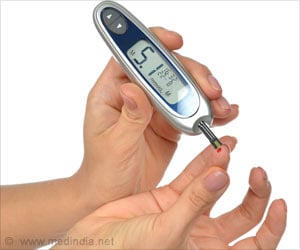
Researchers at the Helmholtz Zentrum Munchen have now developed an accurate method of predicting the probability of developing this progressive disease following childbirth One hundred and ten of the women observed during this period developed postpartum diabetes.
In order to be able to predict in which mother the disease would manifest itself after delivery, the team headed by Anette-Gabriele Ziegler tested various parameters that are known to play a significant role in the genesis of the disease.
Body mass index (BMI) and genetic predisposition both play a role in the calculation, as does the question of whether the mother breastfed her baby and whether her gestational diabetes had to be treated with insulin, explained first author Meike Kohler.
On the basis of these parameters, the researchers introduced a point system to enable them to predict a woman's likelihood of developing postpartum diabetes.
For low-risk scores, the probability of developing diabetes within five years after delivery was only about eleven percent; in the medium-risk category it ranged from 29 to 64 percent, while for the highest-risk scores it was more than 80 percent.
Advertisement
Source-ANI















